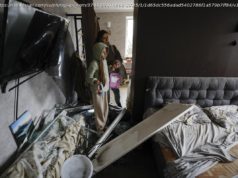John Shields’s decision to end his life was heartbreaking. Meet two others who weighed a medically assisted death.
One of the hardest parts of my job is not writing many of the stories I gather. There is never enough room. My article about John Shields’s decision to end his life was particularly heartbreaking on this account because he wasn’ t the only person who opened up his life and pending death to me. Two women also did.
In all three cases, we struck a deal. They were free to tell me to buzz off at any time, and I might not write their stories. There were two main reasons for this: I didn’ t want to influence their decisions, and I wanted, in the end, to tell one intimate story. All three graciously accepted. In the case of the two women, they told me they had found the interviews helpful. I’ d like to tell you a bit about them.
June Vaile was a feisty and forthright Torontonian. Her diagnosis of colon cancer came as a relief to her, she said, because near-total blindness caused by macular degeneration had robbed her of her life’s pleasures two years before. Canadian doctors performing medically assisted deaths told me this is common, by the way. The suffering of many people nearing death is psychological, from their loss of abilities and purpose.
Ms. Vaile, 80, was a single parent, an interior designer, an avid traveler and, in her 30s, an activist for assisted death with the lobbying group Dying With Dignity. She delighted in the fact that she was now benefiting from that work. She called it a seed she had planted decades ago that was taking bloom now.
In the weeks before her scheduled death, her family surrounded her and many friends dropped in to say goodbye. “If I’ d died naturally as a sick old lady, I’ d have missed it, ” she told me. “I think it’s wonderful.”
She died on April 1 with her two children beside her.
The second woman was Eve McLeod, 62, a quiet and introspective person from Victoria, British Columbia, who died on Tuesday from pancreatic cancer. When she was told she had cancer, she had recently retired from her nursing job and was mourning the loss of her mother.
Ms. McLeod lived in a quaint bungalow, cluttered with her mother’s furniture. Out back was a stunning garden that she loved to work in while listening to Baroque music. She never married, but had deep, rich friendships.
In the end, Ms. McLeod died naturally. But the option to end her life offered her relief — she was very frightened of the pain she might endure — and focus. It prompted her to prepare, she said. When I arrived at her house one day in March, she had the outfit she wanted to be buried in laid out. I recorded her telling me about it on my iPhone. You can watch that video, edited by my colleague Erica Berenstein, here.
Read: At His Own Wake, Celebrating Life and the Gift of Death
My article about Mr. Shields prompted readers to leave comments both on The New York Times’s website and through Facebook. A selection of comments, edited for space and clarity, is below.
We’ re interested in hearing more. How do you and your loved ones handle death? Has Mr. Shields’s story affected your views on what you might consider a “good death”?
Please let me know. We will be reading your responses, and we may publish more of them.
—
— Craig S. Smith found that economics rather than any “Trump effect” explains the rise in American students coming to Canadian universities.
— Ian Austen looked back at the life of Michael Bliss, the historian known in Canada for his political and social commentary and worldwide for his accessible writing on medical history.
— While it is impossible to predict who will be named the new leader of the Conservative Party on Saturday, the debate over “Canadian values” prompted by the candidate Kellie Leitch is unlikely to fade away.





![Mołdawia wybrała Europę. Czas, by Europa nagrodziła Mołdawię [ANALIZA]](http://nhub.news/wp-content/uploads/2025/09/thumb841fe1911fe641ab3e9621e5f20b0967-100x75.jpeg)
